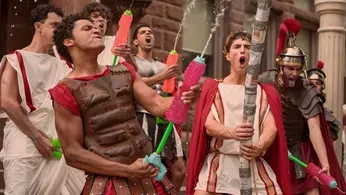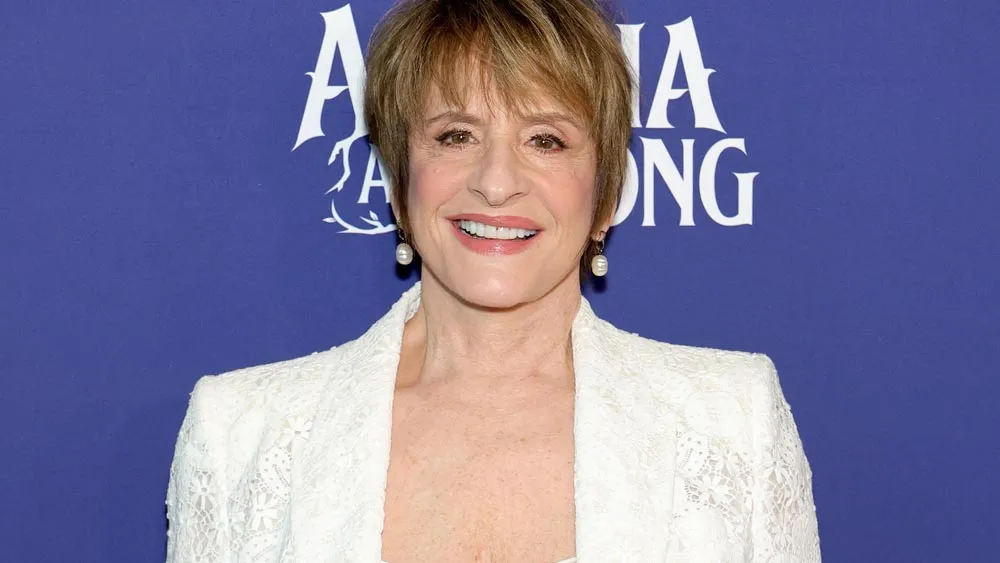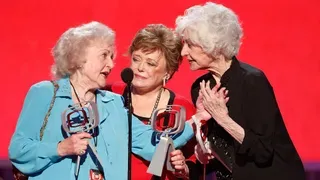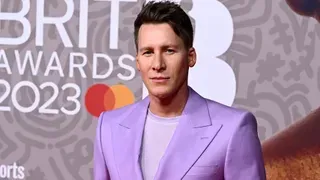
May 14
Review: Benito Skinner's 'Overcompensating' a Well-acted Raunch-Com With a Lesson
Timothy Rawles READ TIME: 6 MIN.
Digital creator Benito Skinner's new Amazon series "Overcompensating" arrives on the streamer starting May 15. It shows off his acting abilities, but it does something more: It provides a glimpse into his real-life coming out journey in college. He even uses his real first name as the show's lead. That journey is the heart of the show, although it's played for laughs, some of which hit the mark, while others feel out of place, as if they were included only for the sake of raunchiness. Tearjerking and funny, "Overcompensating" is built upon the foundation of its talented cast, but often collapses under the pressure of its crude humor and hyperactive jags.
"I think I was inspired by relationships," Skinner said in a recent interview with EDGE Media, "mainly this relationship I had with a woman in college who, I think, was the first person I stopped, maybe, overcompensating in front of."
Skinner plays Benny, a jaw-droppingly handsome Freshman at Yates (a fictional Ivy League college), which his older sister also attends. Benny is a high school sports star, and hauls that reputation with him into academia – not because of his accomplishments, but because that reputation precedes him and, with it, a sense of sexual prowess and hubris... all of which his colleagues think entitles them to get him laid.
The conflict is that Benny is gay. We, the audience, know this, but he hasn't accepted it, and therefore remains closeted. The problem is compounded when he gets a crush on a fellow college mate named Miles (Rish Shah), who may or may not feel the same way.

Source: Amazon Prime/A24
Enter Carmen (Wally Baram), a beautiful, yet troubled, classmate who becomes Benny's good Judy throughout the show. He remains closeted, and that brings some complications to their friendship.
"Overcompensating" is filled with complications that usually lead to episodic cliffhangers, much like the teen dramas of the '90s and early 2000s.
First, let's talk about the positive aspects of the show. The cast is superb. Skinner and Baram have such great chemistry you almost want them to get together, but it just shows the beauty of a gay man having a female best friend, even if he is closeted. Further along in the series, their relationship takes some unexpected turns.
We also meet Hailee, played by mononymous actress Holmes, who is absolutely brilliant in her portrayal, bringing in the majority of the laughs. It's an Emmy-worthy performance, and should jumpstart her career as a comedic actress.

Source: Amazon Prime/A24
We should also mention Adam DiMarco, who plays frat boy Peter, a heteronormative classmate obsessed with power, drugs, and women. He fulfills the brief of teen comedy tropes that say you must have a dominant bad guy to generate conflict amongst the normies. That being said, DiMarco plays the tragic character just outside the stereotype, bringing some relatable humanity (and, therefore, empathy) to the character.
Each actor's performance is top-notch and engaging. Perhaps the most questionable job is done by veteran actor Kyle MacLachlan, who plays Ben's dad; he skirts camp, missing the degree of seriousness needed for the role.
There are plenty of great cameos that we won't spoil here, except to say one is a famous actress from the movie "Grease" who eviscerates her demure persona from that film.
Now for the not-so-good. Since "Overcompensating" pulls a lot of details from Skinner's real life, and it's his story to tell. Nonetheless, he makes broad strokes, which feel strangely dissident. It's as if the writers or producers who aren't Skinner felt the need to embellish his life experiences with raunch and shock value, perhaps aiming for a near-parody, and lighter version, of "Euphoria."
Skinner is known for creating short-form content that pushes limits, and while it makes for a funny reel, he's never wandered too far from that schema. "Overcompensating" follows a different course, including crude humor, shocking images, and potty-mouth dialogue. The Farrelly Brothers started this trend with 1998's "There's Something About Mary," which uses a style they appropriated from the Zucker Brothers.
It's a bold move to resurrect this comedy style nowadays, especially for such a sensitive subject. Some of it works, some of it doesn't, and it feels like the show can't decide whether it's "Euphoria" lite or "American Pie." That might be something that can be better balanced if there is a season two.

Source: Amazon Prime/A24
An example: In one scene, Ben wants to try sleeping with a woman to see if he's really gay. It's a relatable choice, but in explicitly showing a particular sex act that's neither funny nor relevant, it cheapens the humor that could have stood on its own. Cross-checking your sexuality is a funny premise, because it already sets up an awkward circumstance. The way this scene plays out feels like an unnecessary sight gag devaluing an important moment in a closeted gay man's life. Some will find it humorous, but it goes against the heartfelt tone of the overall story, and possibly Skinner himself.
Another weird aspect to "Overcompensating" is its portrayal of women as slutty, vapid, and overly sexualized people whose need for sex is insatiable. Although Ben's sister, Grace (Mary Beth Baron), has a satisfying girl-power arc, her situation is arguably blasé.
The very title of this series is a great one. It sums up Ben's actions, so you know all you need to going into it. The hunky Skinner is great to look at, and watching him grind his acting chops is a treat. He's not new to TV, but this is his first job as a lead, and he carries it well. The other actors also do an incredible job building off their characters from an uneven script.
At its heart, "Overcompensating" is a coming out journey, and when it's focused enough to tell that story it's several degrees better than most of its ilk.
"Overcompensating" streams on Amazon Prime starting May 15.







